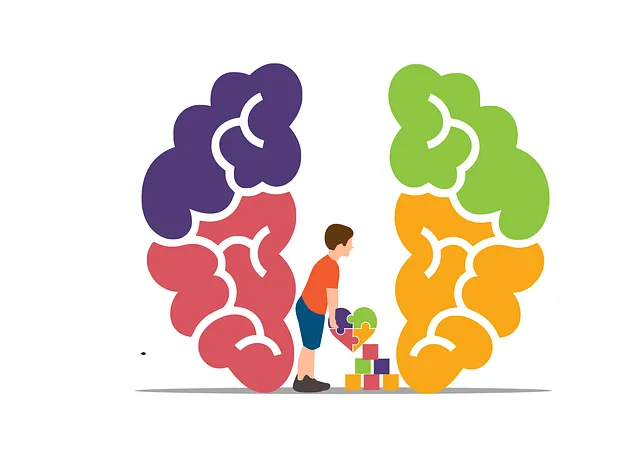Kaiser Permanente's behavioral health services in Lakewood have been transformative, addressing mental illness stigma through cultural sensitivity, holistic care, community engagement, and structured programs. They prioritize safe spaces, self-care normalisation, early risk assessments, and crisis intervention guidance, as evidenced by positive reviews. Success is measured using evidence-based methods, survey responses, and qualitative feedback to quantify improvements in public perception and behavior towards mental health.
Mental illness stigma remains a significant barrier to seeking help, but efforts to reduce it are gaining momentum. This article explores various strategies to combat this pervasive issue, focusing on Kaiser Permanente’s innovative behavioral health services in Lakewood. We delve into the community engagement and education that have made a tangible difference, while also examining successful evaluation methods used to measure the impact of stigma reduction efforts. Discover how initiatives like these are transforming lives through increased access to care.
Keywords: Kaiser Permanente behavioral health services reviews Lakewood
- Understanding Stigma: Barriers to Seeking Help
- Kaiser Permanente's Approach: Behavioral Health Services in Lakewood
- Strategies for Reduction: Community Engagement and Education
- Measuring Success: Evaluating the Impact of Stigma Reduction Efforts
Understanding Stigma: Barriers to Seeking Help

Stigma surrounding mental illness remains a significant barrier to individuals seeking much-needed support and treatment. Many people struggle with the idea of discussing their emotional well-being openly, often due to societal perceptions and misconceptions about mental health conditions. This reluctance can lead to delays in accessing critical care, as evidenced by Kaiser Permanente behavioral health services reviews Lakewood highlighting the challenges faced by community members.
One of the primary reasons individuals avoid seeking help is the fear of judgment and discrimination. Cultural sensitivity in mental healthcare practice plays a pivotal role in addressing this issue. By fostering environments that embrace diverse perspectives and promote positive thinking, healthcare providers can create safe spaces for patients to express their struggles openly. Additionally, burnout prevention strategies are essential to ensure professionals remain empathetic and supportive, thereby encouraging individuals to take the initiative to prioritize their mental health.
Kaiser Permanente's Approach: Behavioral Health Services in Lakewood

Kaiser Permanente’s behavioral health services in Lakewood have emerged as a beacon of hope and support for those grappling with mental illness. The organization prioritizes accessible, comprehensive care by integrating behavioral health into primary care settings, breaking down barriers that often isolate individuals from seeking help. This approach fosters an environment where self-care practices are normalized and stress management workshops become valuable resources for the community.
The initiative goes beyond traditional therapy sessions, offering a holistic view of mental wellness. By training healthcare professionals to conduct risk assessments, Kaiser Permanente ensures early identification of at-risk individuals. This proactive strategy enables timely interventions, potentially preventing more severe outcomes. The organization’s commitment to destigmatizing mental health issues is evident in its efforts to make behavioral health services as accessible and acceptable as possible, reflecting a genuine dedication to the well-being of its Lakewood community members.
Strategies for Reduction: Community Engagement and Education

Community engagement is a powerful tool in the fight against mental illness stigma. By bringing people together and fostering open conversations, communities can dispel myths and promote understanding. Educational initiatives play a crucial role here; workshops, seminars, and awareness campaigns can provide valuable insights into various mental health conditions, breaking down barriers and encouraging empathy. Kaiser Permanente behavioral health services reviews Lakewood often highlight successful community engagement programs, demonstrating their impact on reducing stigma.
These efforts are enhanced by integrating self-care practices and promoting confidence-building activities. Encouraging individuals to prioritize their mental well-being through structured routines and crisis intervention guidance can significantly contribute to a supportive ecosystem. The emphasis on self-care aligns with the broader goal of fostering resilience and ensuring that those facing mental health challenges have access to the necessary tools and resources.
Measuring Success: Evaluating the Impact of Stigma Reduction Efforts

Measuring success is a vital component of evaluating the impact and effectiveness of stigma reduction efforts. Organizations like Kaiser Permanente behavioral health services reviews in Lakewood have recognized this need, incorporating rigorous evaluation strategies into their programs. By setting clear goals and employing evidence-based methods, they aim to quantify improvements in public perception and behavior regarding mental illness.
One such approach is through self-Awareness Exercises and Crisis Intervention Guidance, which help individuals challenge stereotypes and promote empathy. The impact of these initiatives can be gauged by tracking changes in survey responses over time, as well as qualitative feedback from participants. Additionally, the number of people seeking behavioral health services and their perceived comfort levels when doing so provide valuable metrics, reflecting a potential decrease in stigma.
Mental illness stigma reduction is a multifaceted process that, when successfully implemented, can significantly improve access to care. As evidenced by Kaiser Permanente’s behavioral health services in Lakewood, community engagement and education are powerful tools for dismantling barriers to seeking help. By fostering open dialogues, providing accurate information, and promoting empathy, we can create an environment where individuals feel comfortable discussing their mental health concerns. The success of these efforts is best measured through the lens of improved patient outcomes and increased utilization of behavioral health services, as reflected in Kaiser Permanente behavioral health services reviews Lakewood. Ultimately, reducing stigma is not just about changing attitudes; it’s about ensuring that everyone has the opportunity to access the support they need for their mental well-being.






